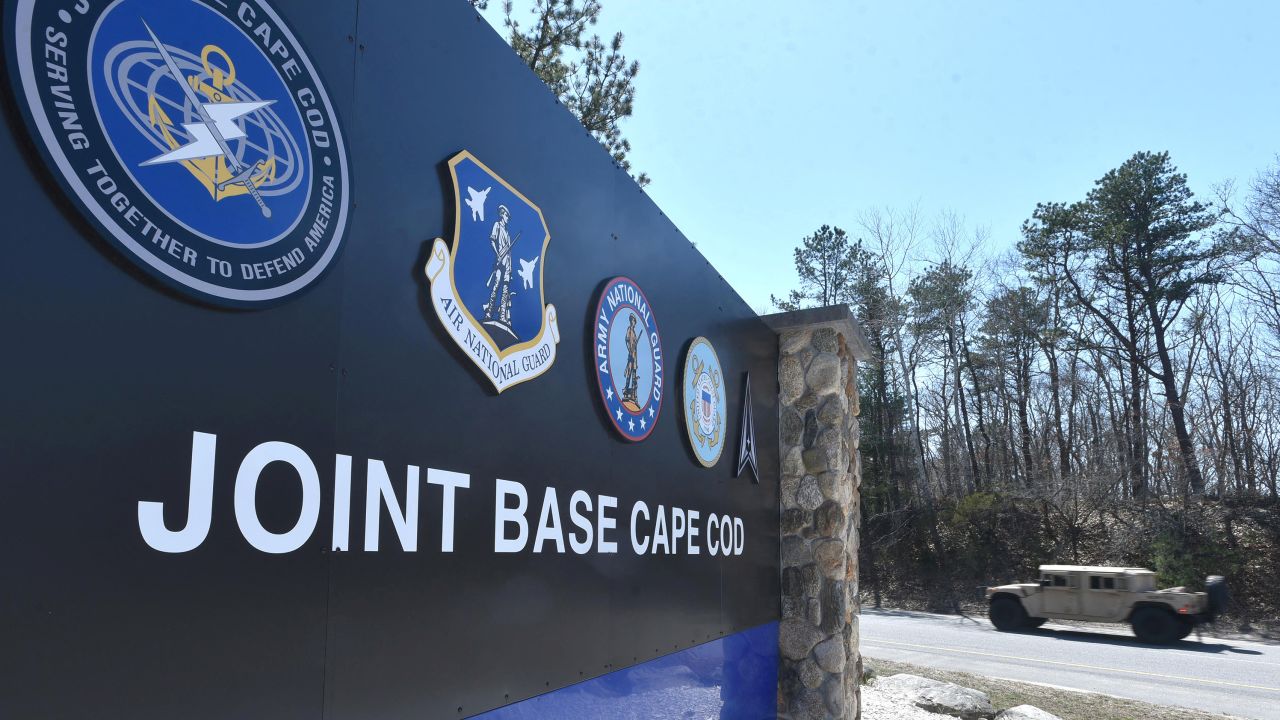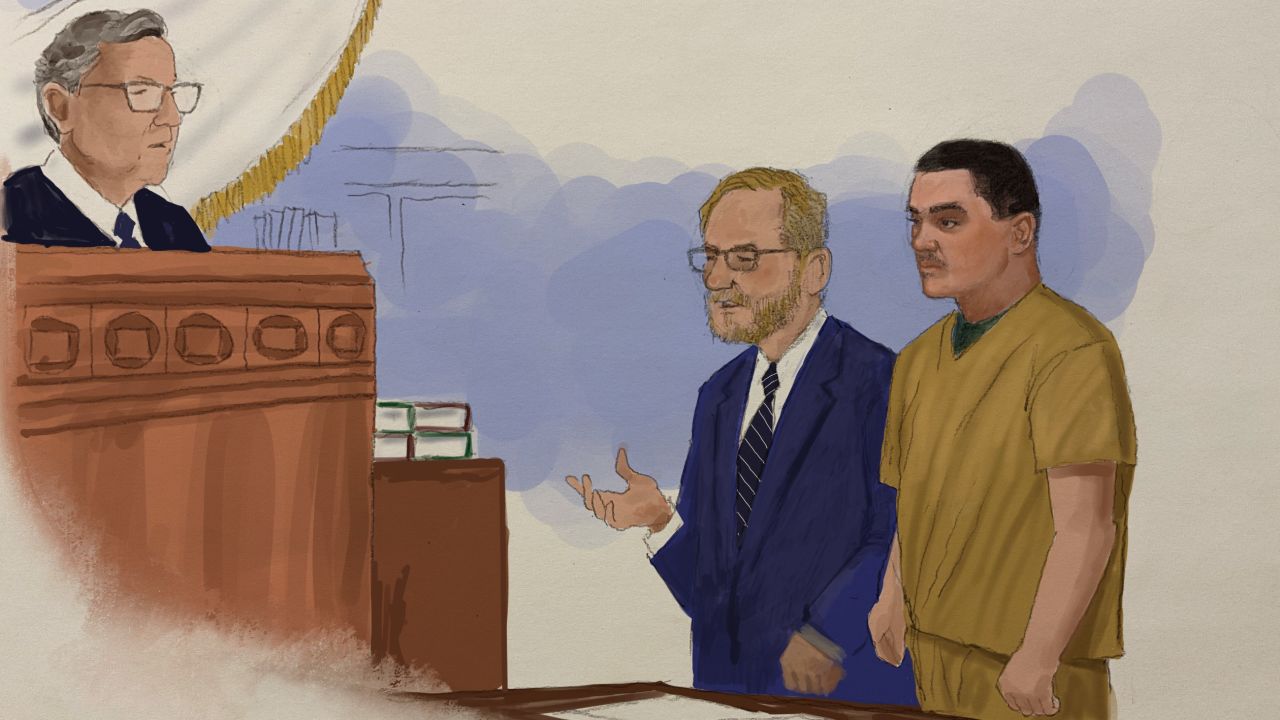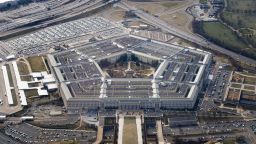The sprawling military base on Cape Cod where Airman Jack Teixeira allegedly stole classified intelligence is home to a 24/7 intelligence operation that is theoretically a highly secure government facility but one where nobody noticed top secret military papers slip out the door.
Such facilities typically operate at all hours with people rotating on and off shifts, sorting through intelligence as it floods in from all over the globe, according to current and former military personnel familiar with centers similar to the one where Teixeira worked.
They’re hard to penetrate, sources tell CNN, but can also be hard to police from within.
“When someone who is cleared and has the access decides they want to do something like that, short of draconian monitoring of people, we’re never going to be able to stop it,” said a current US service member who handles classified military intelligence.
Another former US official told CNN that, while all classified systems “have multiple levels of risk controls,” a “determined insider will find the weak points over time.”
As FBI and Pentagon officials piece together how a junior enlisted airman allegedly smuggled classified intelligence documents off a secure air base, the leak has revealed what defense and intelligence sources say are glaring weaknesses in how the Pentagon safeguards its most sensitive secrets.
For all the attention and resources paid to keeping classified intelligence out of the hands of foreign adversaries, the case of Teixeira, a 21-year-old computer specialist in the Massachusetts Air National Guard, demonstrates the acute threat posed by insiders among the thousands of people with top secret clearances.
A bustling operations floor
From his low-level position in an intelligence unit at Otis Air National Guard Base, sources familiar with military intelligence protocols tell CNN that Teixeira likely had access to JWICS, the Joint Worldwide Intelligence Communication System — a government network for top secret information.
One former Air Force intelligence analyst who worked in similar environments said the sensitive workspace Teixeira was assigned to at Otis Air Base was likely staffed by airmen typically working shifts of either 12 or 8 hours to find and analyze intelligence for commanders around the globe.
The office where Teixeira worked, this person said, is likely a sensitive compartmented information facility, or SCIF, into which airmen are prohibited from bringing any personal electronic devices, including phones or smart watches. There are no cameras inside, the current service member said, adding that inside it’s “just people working at their computers in an office.”
A former Air National Guard officer who served at Otis Air Base for several years following 9/11 said it would be highly unlikely for any classified documents to just be lying around.

“It’s good hygiene, so to speak, you don’t leave things lying around,” the former officer said. “In the event that a bad actor gains access to the space and could just kind of grab something and walk away with it.”
“He knew what he was doing,” the current service member said of Teixeira. The 102nd Intelligence Wing has since had its intelligence mission temporarily reassigned to other Air Force units as the Air Force Inspector General investigates the leak.
At least some of the information Teixeira shared appeared to come from a daily intelligence brief from the Joint Chiefs of Staff’s intelligence arm, known as J2. That information is typically accessible to hundreds, if not thousands of people across the military and US government as a consolidated look at the day’s most current military intelligence.
“In his position, it would have been suspicious for someone to be continually viewing intelligence,” the current service member said. “But if he’s always viewing a consolidated read book and that’s what he’s grabbing … that’s one tab on his computer he has open. He could view it once for five minutes, print it, and put it in his bag.”
Those printers would require the person using it to log in, which would show the unit who had used it, but the service member said it seems likely “no one was looking at the logs.”
“I would not be surprised if at some point we start restricting printer access in SCIFS, which is going to suck,” the service member added.
‘Process fell apart’
The former Air National Guard officer who served at Otis said training sessions on how to handle classified intelligence were held regularly at the base – even more than once a year – and were structured so that “anybody could understand.”
“It’s super obvious,” the former officer said. “I can’t comprehend this individual’s monumental lack of judgment. It’s just stupid. Really, really dumb.”
“I don’t think he’s probably a dumb individual,” he added. “You could be not very smart and very much understand the point of all of this stuff.”
The current service member familiar with classified intelligence described an at-times frustrating bureaucratic process whenever someone gets to a new unit or moves to a new SCIF that involves speaking with security personnel, going back through security forms to ensure nothing has changed since the last time they were signed, and watching videos that are “as blunt as it can get” about the consequences of disclosing classified information.

Personnel also must re-sign a non-disclosure agreement which is “very blunt in saying you acknowledge disclosing this will mean jail time,” the service member said.
Gen. Charles Q. Brown Jr, the Air Force Chief of Staff, acknowledged to lawmakers last week that while there are protections in place to prevent such a leak, “in this case, this process fell apart.”
Multiple sources familiar with classified intelligence protocols told CNN that it’s not common for people to be physically searched as they leave a secured workspace like the one that Teixeira would’ve had access to, for anything they shouldn’t have with them. There are strict self-reporting policies in place, they said, which require personnel to report a mistake of bringing classified intelligence out of the approved areas as soon as it happens.
“So much depends on individual trust,” the service member said, “especially in the military.”
"low" - Google News
April 27, 2023 at 01:59AM
https://ift.tt/UalmRP3
How a low-level national guardsman was able to access classified Pentagon intel - CNN
"low" - Google News
https://ift.tt/6SpgUzJ
Bagikan Berita Ini















0 Response to "How a low-level national guardsman was able to access classified Pentagon intel - CNN"
Post a Comment